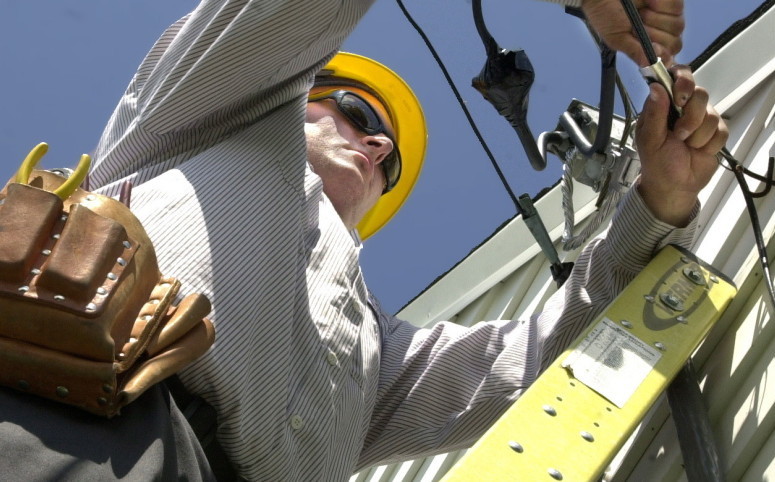We often talk about the Internet as a superhighway for information, but take the analogy a step further.
A highway is no good without on- and off-ramps; it needs feeder roads to function; no one can get on the highway unless it’s somehow connected to their driveway.
In Maine, we have an information highway without ramps, roads and streets. We were ranked 49th among the states for Internet access and quality by one national Internet company and tied for 37th by another. Average broadband Internet speed was well below the national average, and a lack of competition among providers drives up prices for customers, if they can get broadband at all.
And then there’s Rockport. The coastal town of 3,321 people is now linked to the rest of the world with an Internet connection that’s 35 times faster than what is available to customers in San Francisco, a high-tech hub. What’s more, the town and its partners own the network and will make it available to any service provider that wants to hook up homes and businesses.
COMPETITION, FINALLY
Companies will actually have to compete with each other on price and service instead of using monopoly status to make take-it-or-leave-it offers for a poor-quality product.
The Rockport project is modest in size. The 1.6 miles of fiber optic cable cost $75,000 to install, paid for by the town and Maine Media Workshops and College with technical help from the Internet service provider GWI. In its first phase, the project will offer service to only about 70 customers, with opportunities to expand later.
But there is nothing small about the project’s impact. Customers will be able to transmit 1,000 megabits of data a second. For comparison, users of Time Warner’s high-speed Road Runner service can download at 50 megabits per second and upload at only 5.
Rockport is setting an example for every city and town that wants its residents and local businesses to be able to compete in a global economy. You buy and sell goods and services all over the globe if you have an affordable high-speed Internet connection. People with that access can decide where they want to live based on factors like natural beauty and quality of life – some of the few areas in which Maine is not disadvantaged by geography.
It’s too expensive for private companies to string fiber optic cable to towns like Rockport and expect to make their money back quickly. The federal government spent $26 million building an 1,100-mile high-speed fiber network known as the “3 Ring Binder” that would bring world-class Internet capacity to most Maine towns if there were affordable ways for consumers to access it. The missing last link is what’s holding Maine back
ROLE FOR LOCAL GOVERNMENT
Cities and towns can provide that access, just as they build roads, pump water and process trash, either on their own or in regional cooperatives. If a town as small as Rockport can do it, there’s no reason others can’t follow.
“This is a big deal for Maine,” said Sen. Angus King, who was in Rockport this week when the new service was rolled out. “Our only hope is good telecommunications. If we’re stuck in the back of that line, we’re in a whole lot of trouble.”
Abraham Lincoln said, “Government should do for people only what they can’t do better for themselves.”
The people can’t build their own Internet systems, and as we’ve seen, private monopolies will go only so far. Municipal governments should get involved and build the links to finally make the system work for everyone.
Send questions/comments to the editors.



Success. Please wait for the page to reload. If the page does not reload within 5 seconds, please refresh the page.
Enter your email and password to access comments.
Hi, to comment on stories you must . This profile is in addition to your subscription and website login.
Already have a commenting profile? .
Invalid username/password.
Please check your email to confirm and complete your registration.
Only subscribers are eligible to post comments. Please subscribe or login first for digital access. Here’s why.
Use the form below to reset your password. When you've submitted your account email, we will send an email with a reset code.